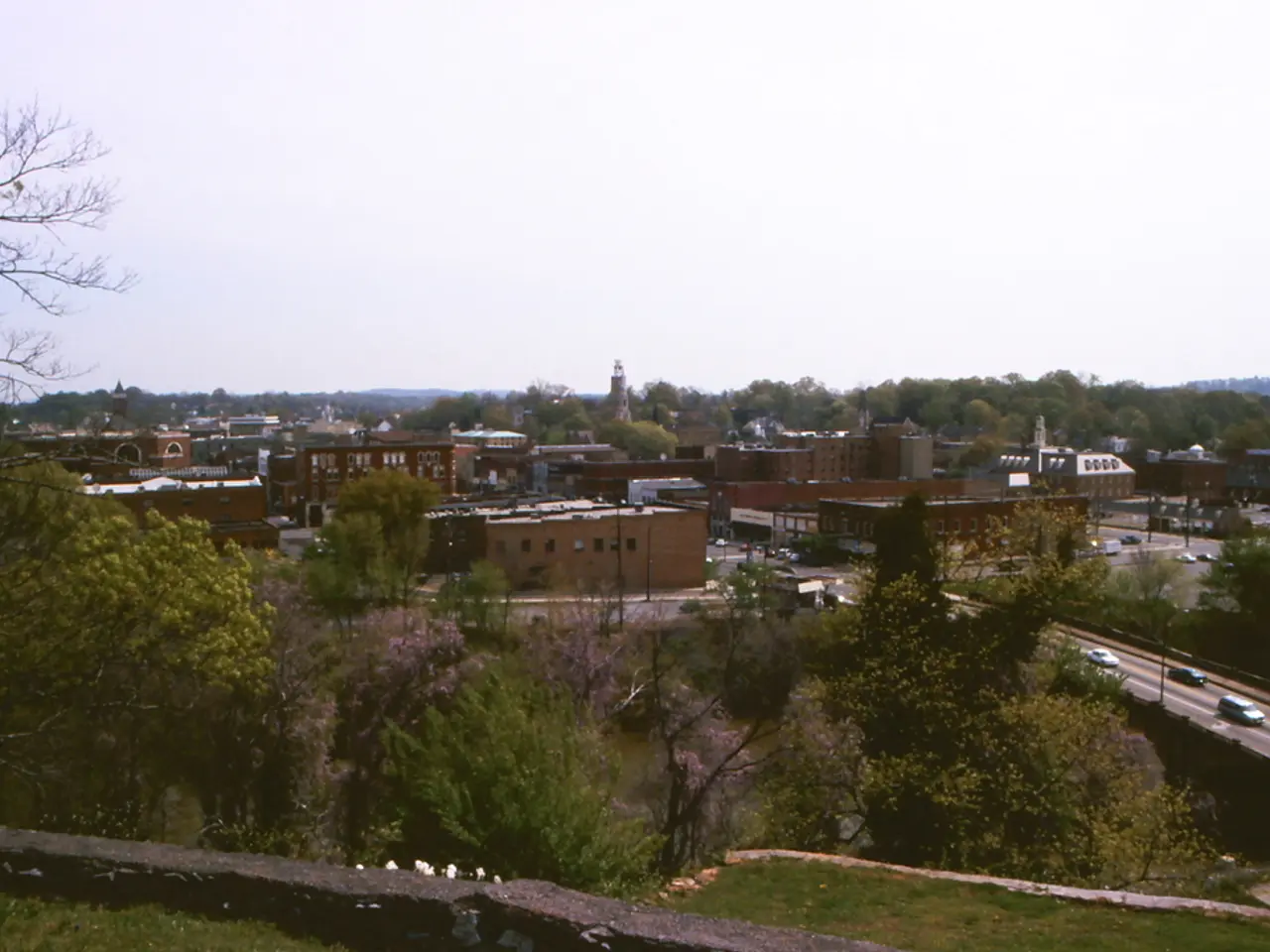Oliver Brügge's First 100 Days as Managing Director at Zanders Developpementsgesellschaft mbH
Transforming Zanders: A Sustainable Urban Quarter Takes Shape in Bergisch Gladbach
The city of Bergisch Gladbach is set to undergo a significant transformation, as the Zanders site (Zanders-Areal) is being redeveloped into a modern, sustainable urban quarter. This ambitious project, part of the Regionale 2025 initiatives, aims to create a climate-friendly and innovative urban space that promotes resource-efficient building practices and adaptive reuse of existing structures.
The redevelopment of the site encompasses various key elements:
- Infrastructure and Building Transformation: The plan is to convert the former industrial structures into climate-friendly buildings, emphasising resource conservation and sustainable construction methods. Discussions among experts and stakeholders have focused on innovative approaches to reuse materials and foster a culture of sustainable building within training and professional frameworks.
- Interim Uses: While detailed interim uses are not explicitly mentioned, the site is expected to host events related to urban redevelopment and sustainable architecture, suggesting ongoing community engagement and temporary utilization to foster regeneration during the redevelopment process.
- Future Industry Focus: The redevelopment envisions integrating future-oriented industries compatible with urban living and sustainability. While specific industries are not yet specified, the emphasis on resource-saving architecture and urban sustainability implies attracting innovative, climate-conscious businesses and cultural initiatives to the new urban quarter.
Oliver Brügge, secured for the Zanders project, has shown expertise and dedication in the complex interrelationships of the conversion. He envisions a mixed, lively quarter with residents of all ages and incomes at Zanders. To achieve this, creative industries, start-ups in the field of digitization and AI, small, modern craft workshops or studios, owner-managed gastronomy, and small-scale retail are potential tenants for Zanders.
The first 100 days in office for Oliver Brügge were marked by getting an overview, initiating planning steps, and starting implementation projects. The Gleispark will begin construction in the summer and is expected to open by next spring. The former "Alte Zentralwerkstatt" will be rebuilt and used as a socio-cultural center, while plans for the excellence module for vocational training, the use of the former canteen and communication building ("Forum") as a city library, and a strategic partner for sustainable central heat and cold generation from air, ground, and wastewater are underway.
The project group Zanders-Areal has done excellent preparatory work, and the central part of the area is expected to be ready for construction and attractive for private investors in about three years. During this time, interim uses such as a studio floor and mobile offerings like gastronomy are planned to keep the site active and engaging.
The redevelopment of the Zanders site is a testament to Bergisch Gladbach's commitment to sustainable urban development. With a focus on resource-efficient building practices, adaptive reuse of existing structures, and the integration of future-oriented industries, the Zanders site is set to become an attractive meeting point for everyone in the city.
[1] Regionale 2025. (n.d.). Zanders-Areal. Retrieved from https://regionale2025.de/projekte/zanders-areal/
[3] Regionale 2025. (n.d.). Baukultur und Materialzyklen. Retrieved from https://regionale2025.de/projekte/baukultur-und-materialzyklen/
- As the Regionale 2025 initiatives transform the Zanders site, there will be opportunities for investors to finance sustainable real-estate development that aligns with the project's focus on resource-efficient building practices.
- Beyond the reconstruction of existing structures, the redevelopment of the Zanders site also offers potential for businesses to invest in future-oriented industries, such as creative industries, digitization, and AI, contributing to the development of an innovative and sustainable urban quarter.




